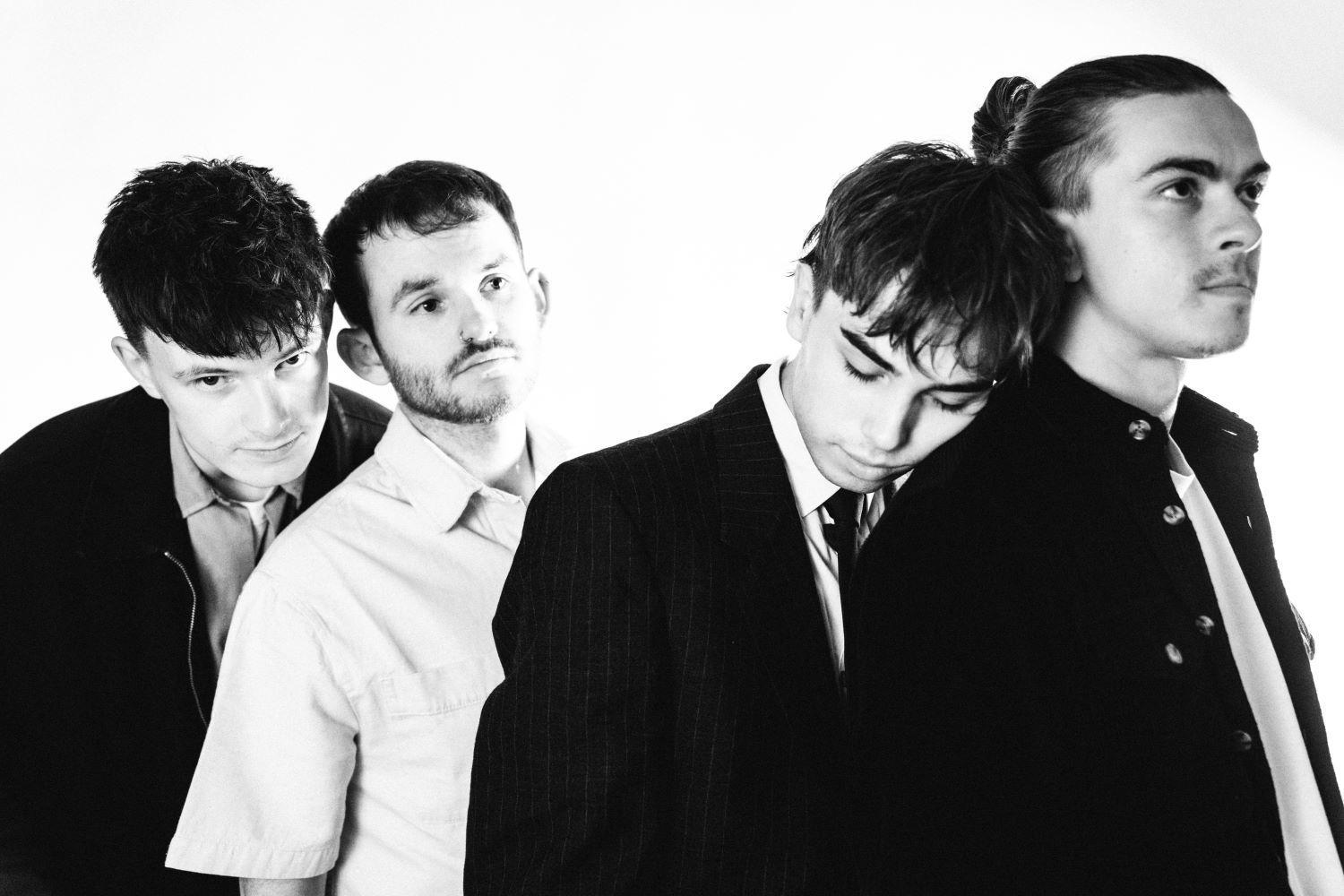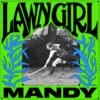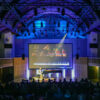WRKHOUSE craft exciting bilingual alt-pop songs crammed with invigorating hooks, and synths underpinned by spacious inventive percussion, it’s a sound with undertones of the likes of Tears for Fears or Talking Heads, LCD Soundsystem, Foals, and 1975 but sounds refreshingly of now, infused with a bold, heart on the sleeve. They recently released their debut EP, Out of the Blue, and set out on a tour in support of it.
Formed by members Lewys Meredydd Siencyn, Gethin Meilir Elis, Iestyn Jones and Ioan Bryn, the Welsh four-piece delivers atmospheric songs that emphasise the beauty of the Welsh language with bilingual songwriting and swelling melodies. With their musical backgrounds ranging from classical to contemporary,
Conceived amidst the challenges of the pandemic while they were in university, WRKHOUSE’s ‘Out Of The Blue’ represents a significant evolution from their previous Welsh Language endeavors as they embark on a journey to explore their bilingual sonic identity. The EP delves into themes of liberation from the constraints of one’s life, whether it be in relationships, self-discovery, or artistic expression. We caught up with WRKHOUSE to find out more.
Hey, how are you?
Good thanks! Slowly recovering from tour…
How did you meet and when did you decide to start a band?
Long story, but Lew and Iest met in 2015-ish on an S4C show called Pwy Geith y Gig?, a show that put together a band for a one-off show at the Urdd Eisteddfod. Gethin and Ioan have been buds since birth, pretty much. The four of us have crossed paths at various choirs/theatre productions/rockschool over the years – we’re a bit naff. Sorry.
Lew started a project named ‘Lewys’ in 2017, joining Recordiau Côsh and releasing a handful of singles through the following year. Iest, Geth and Io had been members of the live band more or less from the start, but by 2019 had started to contribute more to the writing process. We eventually released a Welsh-language album named Rhywbryd yn Rhywle in 2020, which coincided unfortunately with the first of the COVID-19 lockdowns.
Bit of a predictable question but where does the name WRKHOUSE come from?
Having been writing together for the ‘Lewys’ project for a couple of years by the time the album was released, we knew we wanted to come up with a new name that would better represent the four of us as a group. We didn’t realise that the process would take almost three years…
Iestyn went to school in Llanfyllin, where there’s an old workhouse called ‘Y Dolydd’ nearby. It’s now a community-run creative hub, which we feel is quite a cool juxtaposition and progression from what it used to be. A lot has happened since the last time we put out any music – we’ve grown up a bit, and we wanted to lean into that difference between then and now. It also sounds cool.
We tried and tested a handful of names at various gigs while testing out the new material between 2021-22. WRKHOUSE was the one that made the most sense to us in the context of the music.
How would you describe your sound in five words?
Vast, Driven, Dark, Nut-free.
I love the ambitious scope of the recordings I’ve heard up until now, are you always looking for ways to push the sonic envelope?
Whilst putting this Frankenstein EP together, we’ve found that the best way for us to work is to spend a long time with finished songs and look for ways to add textural ‘easter eggs’ and points of interest which press home the broader narrative. We kept adding/removing layers as we experienced new things during the three-year process. It’s a fancy way of saying we like to faff about.
You’ve worked with Steffan Pringle and Mark Gardener (of Ride) What perspective did they give to the songs?
We were quite a naive bunch when we first started writing for the new iteration of the band; we were lucky to be given the opportunity to work with such experienced producers and engineers from the outset, learn a thing or two about the process of piecing together a song, and how long that process can take.
We eventually took three years’ worth of recordings to Ed Al-Shakarchi, who dragged the EP over the finish line for us last year!
I read you used voice notes of your nan’s pianos, and took found sounds from your home, are samples a way of creating a tapestry, something evocative and different do you think? I remember a Depeche Mode documentary where Martin Gore was trying to get the sound of a stone peddle to add to their mix. It’s always fascinated me how you can add textures and “bits of home” to a sound palette?
I (Lew) personally feel a lot more comfortable dealing with sound over lyrics. From a producing point of view, it’s definitely a super fun way of making songs feel more personal, especially if they are turned into musical elements and are interwoven with more traditional band sounds. It also widens the scope of what you can achieve with your live performances. There’s often a danger of diluting the core message of the song with too many layers, but I think we’ve chosen sounds that each have their own connection to the story, and a link to the time or place we first came up with the idea for the song.
I really like ‘Getaway’, what inspired it? I love the spaciousness of the atmosphere, the glimmering synths and the infusion of heart.
When we turned up to Mwnci Studios in West Wales with Steff back in the first half of 2021 to put the start to the then-unnamed project, Getaway was a 30-second demo, and wasn’t a priority for us at all (none of the songs on the EP were!). We were all encouraged by Steff to get it finished that week, and after that, it became a blueprint for the sound of the project moving forward. It had always made sense for ‘Getaway’ to be the debut single as it was a notable step away from the previous Welsh-language material. We wanted to press home early on to our audience that this was a different project.
It’s a very linear, straight-talking song which takes a lot of inspiration from the drum grooves of Foals’ ENSWBL era. We wanted to make sure there was plenty of movement without interfering with the foundational kick-bass-hat pattern, so we tried to make the synths/pads sound as organic and ‘alive’ as possible, taking inspiration from the likes of Floating Points, LCD Soundsystem etc.
You’ve been compared to the likes of Tears for Fears and other ’80s bands but I also hear elements of the 1975 or Perfume Genius, what artists or records inspire you?
There’s all sorts. The key inspirations, particularly for this EP, include Low Island, WOOZE, LCD Soundsystem, all of which have an ’80s colour to their sound, so it makes sense.
In terms of music from Wales and Welsh-language music, Sŵnami were definitely one of the bands that made it feel cool to listen to Welsh-language music back when we were teenagers. We’re also very happy to see that The Joy Formidable have made a bit of a comeback recently – we take a lot of inspiration from them for the louder moments in our live shows. Honourable mentions include Ysgol Sul, Estrons, and Boy Azooga.
We like to squeeze in electronic and sample-based elements into our music, and I (Lew) get that mainly from Jockstrap. ‘Robert’ was all I listened to for a good while, you can definitely hear it in ‘Getaway’.
Iestyn put us on to World’s Strongest Man by Gaz Coombes in 2019 soon after the album came out. There’s a lot of choir going on on ‘Getaway’ and the rest of our debut EP – this is where we got it from. The level of restraint you can hear in ‘Oxygen Mask’, with its dynamic and intimate arrangement, is brilliant, and it’s something we wanted to bring over to the band’s music.
You produce bilingual songs, is it important to you to reflect Welsh culture in your music too?
We were all raised and educated through the medium of Welsh, and all consider Welsh to be our first language. Since releasing the ‘Lewys’ album in 2020, and deciding afterwards to experiment with English songwriting, it’s been a long journey to find a comfortable medium; Welsh is something that will naturally find its way into our music no matter what.
I’ve been told you have a saxophonist live. Are you a fan of adding extra instrumentation to your live set?
It’s true! We brought a very good friend of ours, Sam Brockett, along for our EP Launch tour throughout the first two weeks of April. Saxophone, vocals, percussion, bass… whatever we asked them to do, they’d do it. They’re a brilliant songwriter in their own right and we’re waiting patiently for them to get something out!
Bringing onboard additional members for live isn’t something we’ve done before in our five years of performing together; our new set – the new tracks in particular – needed an extra pair of hands, so it was exciting to hear Sam’s fresh perspectives. We’ll definitely be doing it again at some point moving forward. If Geth had his way, we’d be bringing a brass band to every show, but for now, we’ll stick to the sax.
What’s on your playlist?
Van journeys between shows were interesting. They’d always start with ‘Send Me On My Way’ by Rusted Root, followed by a few James Taylor songs, particularly ‘Mexico’ and ‘You Are My Only One’. Then we’d give the aux to Sam, who would give us hours of hyperpop unless told otherwise. Aled, our videographer, would only queue songs by The Voidz, and ‘Motowei’ by niche north-Walian band Y Morgrug (The Ants), of which he proudly claims to be the single monthly listener on Spotify. We’re insufferable.
Tell us one thing people wouldn’t know about you as a band?
We like to watch ‘Girls 5Eva’ after a show.
DISCOVER WRKHOUSE




